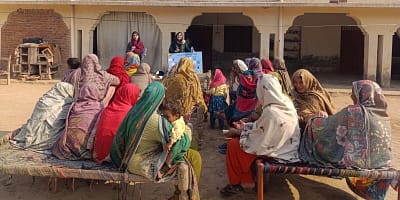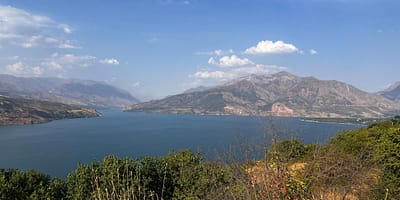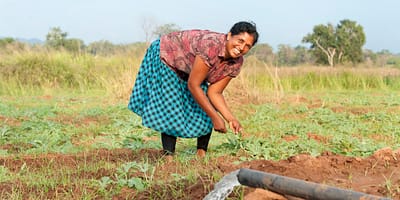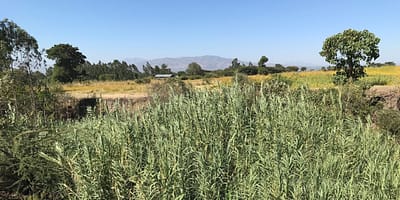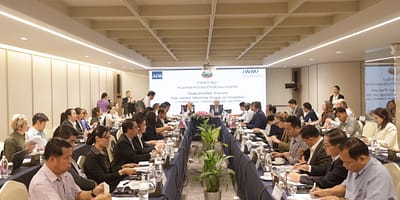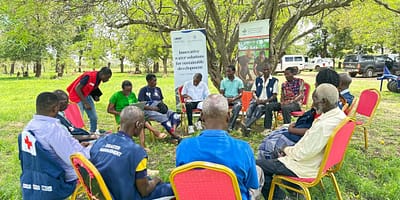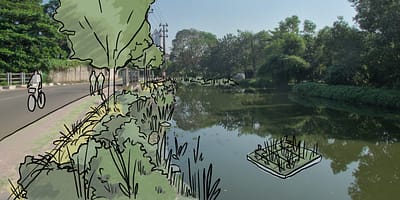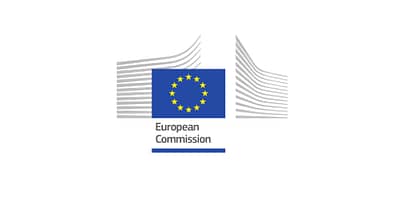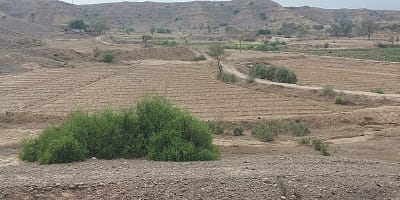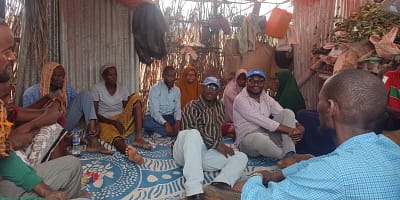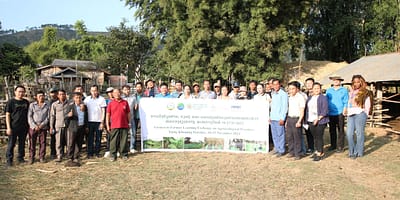All Categories Annual reports (6) Blogs (273) From the DG (6) Multimedia (0) Infographics (3) Photos (6) Podcasts (10) Videos (35) News (484) Explainers (3) Features (159) In the media (740) Press releases (81) Publications (47) Specials (0)
All Tags 2di 3d 4bgp aasw abdullah ahjedi access to markets accra Action research adaptation adaptation pathways adaptive management adaptive water management addis ababa addis ababa university aditi mukherji aditya sood adoption and impact advocacy Advocacy and campaigns africa africa news africa water week africa-rising african union african union commission african youth development afromaison agrarian change agreements AGRF agri-photovoltaics agribusiness agricultural commercialization agricultural development agricultural economics agricultural ecosystem agricultural fields agricultural finance agricultural innovation systems agricultural insurance agricultural intensification agricultural losses agricultural marketing and value chain analysis agricultural partnerships agricultural policies agricultural practices agricultural productivity agricultural science agricultural structure agricultural systems agricultural technologies agricultural wastewater agricultural water agricultural water access agricultural water management agricultural water productivity agriculture agriculture economics agriculture research agriculture systems agriculture water management agricultureal water management (AWM) solutions agrilinks agro chemicals agro-mechanization agrochemical agrochemicals agroecology agroecosystems agrometeorology agronomy services agrowells AI aiccra air pollution monitoring airbmp airc alemseged tamiru haile aljazeera amarasinghe amare hailesellasie amare haileslassie amcow amgad elmahdi anawilundawa andaman sea andhra pradesh andreas ulrich andrew adam-bradford andrew okem angola animals announcements annual reports anopheles mosquito anthology anthropocene anticipatory action anuradhapura anuradhapura district apan appg application development apps aprsaf aquaculture aquaculture-agriculture systems Aquatic Agricultural Systems aquatic biodiversity Aquatic ecosystem health aquatic food systems aquifer aquifers ar2014 arabia Aral Sea arif anwar arsenic artificial intelligence ashok chapagain assam atmospheric water audience analysis augmented reality australia australian aid availability and allocation of water awards aware azeem shah azrai azraq oasis badecc badulla bahir dar university balangoda bale bale eco-region banana banaras hindu university bangkok barbara schreiner barbara van koppen barbara wells barisal basin basin water accounting basins bathymetric data processing batticaloa bay of bengal berkeley berlin beverage bhagwatipur bharat sharma bhojpur bhungroo bhutan bicsa big data big data analytics bihar bio chemical fluxes bioclimatology biodegradable waste biodiversity biofuels biological assemblages biophysical modeling biosolids biowaste bird watching blackwater blue nile blue nile basin blue revolution Board of Governors board of trustees boluwaji onabolu bonn books borlaug botswana brand banagement Brand development brazil bridging science bridging science, practice & policy budapest budapest water summit building resilience bundelkhand burundi business development business economics business model development business models buzz cabbage cai xueliang cairo water week call for proposals camels campaigns canal canal irrigation management canals capacity building capacity development capacity strengthening cape town capval carbon care caribbean region carolyn fry cartographic modeling cartography carzi cascade systems cascade tank cascading tank system caste catchment hydrology catchments cattle cb4soilreha ccafs cea cecily layzell central asia central indian region cgiar initiative on nexus gains cgiar inspire challenge cgiar research programs check dams chennai chhattisgarh chris panabokke chronic kidney disease chronic kidney disease of unknown aetiology chronic kidney disease of unknown etiology chu thai hoanh chunnakam aquifer ciat cifor cimmyt circular bioeconomy circular economy cities citizen science city waste ckd ckdu claire swingle clara colton symmes claudia ringler claudia sadoff clean energy clean water climate climate & sustainability climate action climate adaptation climate analysis climate and food security Climate change climate change adaptation climate change and resilience climate change assessment climate change impact assessment climate change impacts climate change mitigation climate change policy climate change vulnerability climate commitments climate crisis climate downscaling climate extremes climate finance climate governance climate mitigation climate monitoring climate negotiations climate policy and governance climate resilience research climate resilient agriculture climate resilient seeds climate risk climate risk insurance climate risk management climate sciences climate security climate services climate smart agriculture climate smart water management climate variability Climate Week climate-proof climate-resilient buildings climate-resilient cities climate-resilient livelihoods climate-resilient world climate-smart climate-smart irrigation climate-smart seed varieties climate-smart solution climate‐related hazards cloud computing cmc cnn coaching cocoa coconut research institute coffee collaborative research collective action colombo colombo wetlands columbia combat communal irrigation schemes communications communities community community coordination community forestry community of learning Community resilience community-based approaches community-based organizations community-led water services community-managed irrigation compilations compost composting computational science computer programming conflict conflict and fragility constructed wetlands construction management contamination Content Development Content strategy contract administration control of water pollution cop cop 23 cop13 cop24 cop25 COP26 COP27 COP28 COP29 copevents coringa corona virus corporate cost-benefit analysis cotton farming courses covid-19 cpwf creative writing credit and insurance market Crisis communications Crisis Response crocodile crop Crop modelling crop per drop crop production crop productivity crop water balance modeling cropping patterns crops cross-cultural communication cryosphere cultivation customary water tenure cuttack cyclone dafne dailekh dairy dakar dam dams dandugam oya dare data & tools data analysis data collecting data management data monitoring data visualization database david molden david stifel david wiberg decentralized wastewater management decision support systems decision support tools deepa joshi deforestation delhi dennis wichelns desalegne tadesse desalination desertification deserts development development and marginalization development cooperation development dialogues development economics development planning devex dfid dg update dialogue diana suhardiman diet digging pits digital agriculture digital and creative technologies digital cartography digital earth africa digital innovation digital marketing digital soil mapping Digital strategy digital surface model digital tool profile digital tools digital transformation digo jal bikas dinesh gunawardena director general disaster Disaster displacement disaster management disaster management centre (dmc) Disaster preparedness disaster reduction disaster relief disaster risk management disaster risk reduction disaster risks disasters diseases displacement and migration diversified crops diversity djb dmc don blackmore doordarshan DR+10 dragon mountains drainage drakensberg drinkable water drinking water drip irrigation drone drones drought drought assessment drought monitoring dry zone dryland dryland systems drylands dushanbe early action early warning earth earth day earth observation earthscan east africa east africa west africa southern africa east godavari riverine estuarine ecosystem eastern gangetic basin eastern nile basin ebee eco tourism ecological indicators ecological sampling econometric modeling econometrics economic analysis economic crisis economic development economic empowerment economic policy analysis economic power economics economics of water resources economist intelligence unit economy ecosystem ecosystem services ecosystem valuation ecosystems editing Editorial planning education efficiency analysis efficient water use in agriculture el niño eleaf eleanor ross electricity electronic bee elpais emergency response emerging businesses and business environment emissions employment empowering agriculture empowerment endemic species energy energy and water nexus energy markets energy transitions engagement engineering entrepreneurs environment environment and rural development Environmental communications environmental conservation environmental economics Environmental engineering environmental flows environmental hazard environmental impact assessment Environmental man environmental microbiology environmental migration environmental modelling environmental monitoring environmental planning environmental science management environmental studies environmental sustainability environmental water requirements equity equity in land erag erosion esther wahabu ethnoclimatology ethnography eu-sddp euractiv eurekalert european union european union (eu) eva ludi evaluation evapotranspiration event management events exclosures exploitation aquifer testing External relations extreme weather facts faecal waste faiz alam family family nutrition farm farmer farmer suicides farmer-led irrigation farmer-managed irrigation farmers farming farming system analysis farming systems analysis farmland fecal sludge feminist political ecology feminization feminization of agriculture fergana valley ferghana valley fertilizer fertilizers feudalism field coordinator field experiment setups field instrumentation field survey assessment fiji filming finance financial administration financial times financing and marketing fingerprinting fiona bottigliero fish fish farmers fisheries fisheries and water governance fisheries-based livelihoods fishing fishing villages flid flood flood –risk mapping flood and river management flood hazard flood hazard and vulnerability assessment flood insurance flood management flood mapping flood modelling flood risk flood risk identification flood risk reduction measures flooding floodplains floods floods and droughts floodwater floriane clement florianne clement flow monitoring fodder and crops diversification fog harvesting food food and agriculture organization (fao) food and ecosystem nexus food bank food banks food chain food chains food insecurity food land and water food microbiology food production food quality food safety food security food security and poverty analysis food supply chain food system analysis food systems food value chains food vendors food waste food waste and loss foodborne disease forced migration forecasting foreign policy forest fire forestry forests fortifer fortifier Fragile and Conflict Affected Settings Fragility fraser sugden freetown freshwater freshwater fisheries fruit and vegetable quality fsm4 fswg fulani farmer fullpage funding furrow systems futurepump galenbindunuwewa galilea tomato gamification gampaha Ganges ganges basin ganges river basin ganjam garden kits garden technologies gas emissions gcrf gender analysis gender and inclusion gender and social inclusion gender assessment gender empowerment gender equality Gender inclusion gender mainstreaming Gender roles gender-based climate change adaptation gender-sensitive migration general assembly geo-information Geo-information science geo-structural geodata analytics geodatabase design and development, Geographic Information Science geographic information system geographic information system (gis) geographic information systems geographical information system Geography geoinformatics geology geophysical techniques geospatial analysis geospatial data analytics geospatial modeling german government germany gezira ghm giriraj amaranth giriraj amarnath girma ebrahim girma yimer ebrahim GIS gis process automation gitta shrestha glaciers global environment facility global facility of disaster risk reduction Global Food Systems global health global information systems global positioning satellites global positioning system global soil week global spatial data analysis global warming global water adaptation godavari basin golaghat google earth engine governance governance and institutions governance and policy analysis and advocacy government-CSO nexus gps grain grains grape graphic designing greater mekong region Green Building green leafy vegetables greenwell matchaya greywater gripp ground water groundwater groundwater abstraction groundwater assessment and modelling groundwater contamination groundwater flow modelling groundwater for agriculture groundwater governance groundwater hydrology groundwater in africa groundwater irrigation groundwater management groundwater monitoring groundwater pollution groundwater quality groundwater recharge groundwater resources investigation group facilitation Gujarat gwp habitat handwashing harvesting haryana hauke dahl health health & food security Health and water health hazards health risks helicopter helmsley charitable trust herath manthrithilake high-level political forum high-tech water management himalayan mountain ranges himalayas hindukush himalayas HMNDP home gardens horgen horizon scanning horticulture huffington post huffingtonpost human human development human health human resources management humanitarian efforts humanitarian response humanitarian-development-peace nexus hungary hunger hybrid crop varieties hybrid water law hyderabad hydraulic engineering hydraulics research center hydro-climatic extremes hydro-climatic modelling hydro-economic hydro4u Hydroclimatology hydrodynamic modeling hydrodynamic modelling hydrogeology hydroinformatics hydrologic analysis hydrological and climate models hydrological cycle hydrological data hydrological extremes hydrological modeling hydrological systems hydrology hydrometeorological instrumentation hydrometeorological modeling hydropower hydropower dams hydropower schemes hygiene hyrologic modelling iah iasc ibadan ibfi ibkf ibkp ibsram icar ice stupas icid ict idawm iddc ideological power ifa ifc image analysis imawesa impact impact analysis impact assessment impact evaluation impact of climate change and land use changes on hydrology inclusion inclusive finance inclusive governance inclusive growth inclusive innovation indegenous species India Water Week 2024 indika arulingam indo-gangetic indrawati subbasin indus indus basin indus basin knowledge platform industrial crops inequality infiltration pond remediation informatics information system inga jacobs-mata innovation innovation fund innovation policy innovation scaling innovation systems innovative financing mechanisms inrem inspire challenge institutional analysis institutional and social innovation institutional innovation institutional strengthening instrumentation insurance integrated agroecological modeling integrated irrigation & agricultural livelihood development Integrated soil fertility management integrated storage Integrated Water Resource Management integrated water resources management Integrating analyses intensified agricultural production interdisciplinary research interferometric synthetic aperture radar (InSAR) Internally Displaced Persons international day for women and girls in science international day of rural women international days international decade for action international environmental law international forests day international migrants day international water International Women's Day intersectionality interviews inundation investment investment analysis investment climate inwepf iopscience iot ipbes ipcc ipi ipni iran irrigated agriculture irrigated area irrigated commodities irrigated cropping systems irrigation irrigation agronomy Irrigation and agricultural water management irrigation business model irrigation development Irrigation engineering irrigation expansion irrigation management irrigation mapping irrigation performance irrigation planning irrigation scheduling irrigation schemes irrigation technology irrigation water irrigation water management isis palay israel issahaku jesiwuni itp iucn iwmi 30 iwmi in the news IWMI Research Reports IWMI Resource Recovery and Reuse series IWMI Water Issue Briefs IWMI Water Policy Briefs IWMI Working Papers iwrm izabella koziell jaffna jaffna groundwater jaffna kilinochchi water supply and sanitation project jahanzeb masood cheema jai c. rana javier mateo-sagasta jaxa jehanzeb masud cheema jennie barron jeremy bird jessica troell jharkhand jiwai jadid johan rockström john matthews josiane nikiema journal articles journalists julie van der bliek jungle jyotigram yojana kabul river kakhramon djumaboev kalanithy vairavamoorthy kalpitiya kanwal waqar karakoram karen nortje karen villholth kari davis karkheh river karnataka kathmandu kathmandu post katie copley kattankudy urban council kausik ghosh kawkabuna kaza kazakhstan kelani river KFUEIT khadija begum kidney disease killinochchi knowledge management knowledge sharing kolkata koshi basin koshi river kristin davis kumasi kurigram kurunegala kusum athukorale kyrgyzstan la times labisha upret labisha uprety labor market ladakh lagoon lagoons lake lake tana lake ziway lakes lal induruwage land land and resource rights land and water management land degradation land grab land management land use planning land-water nexus landscape management landscape restoration landscapes landscaping landslides lanka jalani lanka rain water harvesting forum lao large-scale irrigation latin america leadership learning and impact delivery learning event lebanon letaba river letitia obeng library life cycle assessment lift likimyelesh nigussie Limpopo limpopo basin limpopo river basin lindha langa liquid waste treatment system lisa-maria rebelo literature review livelihood livelihoods livelihoods or food security lives livestock liza debevec loss and damage Loss and Damage Fund louise sarant low-carbon development lucy lawrenson luisa chantler edmond luisa charles luna bharati machine learning macroeconomic forecasting macroeconomic modeling madar samad madhya pradesh magadi maha oya mahaweli mahinda rajapaksa mairi dupar maithripala sirisena malaria malaria journal malawi maldives man-made managed aquifer recharge mangrove manita raut mansi tripathi map mapping maps mard marginalization marie-charlotte buisson marine biodiversity maris mark smith mark thomson market gardens Market Interventions market opportunities market research market systems development marketing mars mathematics matthew mccartney mcgill university mdg meat contamination media media dialogue Media Relations meera bisht meghajit sharma shijagurumayum Mekong memorial mena menadrought menstrual hygiene day mentoring Merel Laauwen meron teferi taye meteorological data mexico michelle ng micro irrigation micro-econometrics microbial pollution Microeconometrics microeconomics microfinance micromodules microplastics microwave remote sensing middle east migrants migration migration governance strategies migratory birds mihir shah milestones millennium millennium development goals minerals miriam otoo mirriam makungwe mission mitigation mixed farming mixed reality mizoram state mizzima mmrd mobile apps mobile phones mobile weather stations modeling modeling and management modelling models modi modis modm mohamed aheeyar mohammed aheeyar mohsin hafeez moisture mongabay monitoring monitoring and evaluation monkombu sambasivan swaminathan monsoon monsoon rains monsoonal climate monsoons more crop per drop moshin hafeez mosquito-borne diseases mosquitos mother ganga motor pumps mou mountain mountain hydrology msnbc muhammad tousif bhatti mullaitivu multi-criteria decision-making analysis multi-scale integrated river basin management multi-stakeholder processes Multimedia production multiple use systems multiple use water services multivariate drought hazard mumbai municipal solid waste municipal solid waste management municiple solid waste mus nachchaduwa nafn amdar nairobi namibia naryn river nasa natgeo national geographic national mission for clean ganga national policy dialogue natural capital natural disasters natural gas natural hazards natural resource governance natural resource management natural resources Natural resources management natural wetlands nature nature base solution nature-based solutions nautical charting navatkadu nebraska nefej negombo neha khandekar nema nemaf neps nestlé netherlands new delhi new york times next-generation irrigation systems nexus nexus approaches nexus gains nigeria nihsa nilanthi jayathilake nile nile basin nile delta nile river nile river basin nilu rajapakse niranga alahacoon nirman shrestha niroshini fernando nitrogen nitrogen fertilizer non-stationary analysis north africa north africa news north central province northern ghana northern lao pdr novaira junaid novel composite materials nutrient fluxes nutrition nutrition sensitive agriculture Nuwara Eliya nyan thiha obituaries obituary odi odisha off-grid solar irrigation ohnmar kaing oibs ojongetakakah enokenwa baa olifants river olivier wenden olufunke cofie oluwadara alegbeleye omo-turkana on-farm interventions on-farm water access one cgiar one health onions op-eds open access open data cube open-source technology organic organizational learning organizational management osmosis ouagadougou outmigration outmigration crisis Outreach and engagement over-watering overgrazing overshoot day oxana savoskul oxford university pacific ocean paddy cultivation paddy fields Pakistan Pakistan Water Week 2024 pandemic paris climate agenda parity participatory action research participatory irrigation management participatory research partnership development partnerships patience mukuyu paul pavelic paula pacheco PAWEES pay drechsel peace peacebuilding pegasys institute people perennial crops performance assessment of irrigation system peri-urban Peri-urban agriculture pesticides petra schmitter phenology philippines phindiwe nkosi photo story photogrammetric surveying photogrammetry photography pilisaru PIM pit latrines plant nutrition plant setup plants plastic plastic pollution crisis plastics policies policies and institutions policy policy analysis policy and institutional analyses policy and institutional analysis policy and regulation policy coherence policy makers policy pathways policy research Policy work and program managemen political Political economy pollution pond poolad karimi population population growth portable weather stations portfolio management positive migration Post-harvest post-monsoon post-monsoon ecological sampling postcards potato poverty poverty and conflict poverty assessment poverty reduction prachi patel practice & policy pre-departure training precision agriculture president pretoria prime minister prince albert ii of monaco foundation private sector cooperation private sector partnerships priyanie amerasinghe prize process modelling program coordination program development program leadership program management project coordination project development project management prosopis juliflora public health public policy public relations public-private partnerships publications publicity pump irrigation pumps punjab pvc piping pypip Python programming Q&A qualitative data analysis qualitative research methods quantitative analysis and econometrics quantitative data analysis quiz radheeka jirasinha radio radio interview rain rain water harvesting forum rain-fed agriculture rain-fed cropping systems rainfall rainfall patterns rainfed rainfed agriculture rainfed cropping rainwater rainwater harvesting rainwater storage ramotswa ramsar randy barker rangelands ranjitha puskur rapid emergency response mapping rauff hakeem reach reach-str real-gud recycling refugees regional cooperation regional development regional news relief and rehabilitation reliefweb remote sensing remote sensing data renewable energy renewable energy systems modeling renewable energy technologies report writing reporters researc research and production research initiatives research methodology development research partnership research supervision reservoir reservoirs resettlement resilience resilient agriculture resilm resource mobilization resource politics resource recovery and reuse resources recovery and reuse restoration ecology retaining water reuters rewater mena rfq rice rice cultivation rice farmers rice today Rift Valley risk assessment risk mitigation risk reduction risks river river and urban hydrology River basin planning and management river basins river for jaffna project riverbed rivers riverse osmosis rlpi robotics robyn johnston rockström root crops rose ruaf rural rural development rural development policies rural livelihoods rural transformation Rural water development rural-urban linkages russell sticklor sack vegetable cultivation sadc sadms sadri safe use of marginal quality water in agriculture safe wastewater use sahara basnet Sahel saida usmonova sais jhu salinity salinization salman siddiqui salt saltwater intrusion samurdhi ranasinghe sand dam sand dams sand mining sandra ruckstuhl sanita dhaubanjar sanitation sanitation and hygiene sanjiv de silva sanmugam prathapar santosh nepal sardor khamidov sarlahi satellite satellite data Satellite Image Analysis satellite images satellite imaging satellite sensing satellite-based monitoring and early warning savannah helicopters scalability scaling scaling awl solutions scaling partnerships schools science science and policy Science Communication science for a water-secure world science policy and practice science to policy science to policy interface science-based learning sdc sdg sdg6 seasonal water scarcity secmol sediment study sediment transport modeling sei sell energy senegal sentinel sentinel asia serious gaming sewerage shahid iqbal shakhimardan shallow groundwater modeling share-ber shisher shrestha shreya chakraborty sida sidra khalid sivasagar siwi sky sky news skytem slideshow sllrdc sludge slwater smakhtin small farmers small ponds small reservoirs small scale irrigated crop production small scale irrigation technologies small wells small-reservoir small-scale farmers small-scale irrigation small-scale irrigation structures small-scale water storage smallholder farm systems smallholder farmers smallholder irrigation smallholders smaranika mahapatra smart agriculture soas university of london social behavior change social ecological landscape assessment social ecological landscape assessment and management social inclusion social justice social learning social media management social movements social networks social risk assessment social safeguard policies social safety net social science social solidarity social transformation analysis social-ecological systems socio-technical transition socioeconomic analysis socioeconomic elements Socioeconomic study of poverty Socioeconomic study of poverty, livelihoods or food security soil soil and water conservation Soil and water resources conservation soil conservation soil erosion soil fertility soil health soil management soil microbiology soil moisture soil rehabilitation soil salinity solar solar crop solar energy solar energy pump solar irrigation solar motor pumps solar panels solar photovoltaic-thermal systems solar power solar power for irrigation solar pump solar pv solar suitability solar water desalination solar water pumping solar water pumps solar-based irrigation systems solar-powered irrigation solar-powered water pumps solid and liquid waste management solid waste solid waste management somalia song river soumya balasubramanya south asia south asia news south sudan south west monsoon season south-south dialogue southeast asia southern africa spain sparc spatial analysis spatial computing spatial data management and analysis spatial data modeling spatial hydrological modeling Spatial hydrology spatial modeling spatial modelling spices sponges springs sprinkler irrigation sri lanka civil war sri lanka land reclamation and development corporation sri lanka rice production sri lanka technology sri lanka water partnership sri lanka weather srilankawater srinagar staff stanford university state-building statistics stats stefan uhlenbrook stephanie leder stephen bygrave stochastic modeling Stockholm Water Prize storage systems storm water storms storytelling Strategic communications Strategic planning strategic thinking strategy structural transformation sub-saharan africa subsistence agriculture subsurface success stories sudan sudarshana fernando sunculture sundarbans sunday times sunshine farmer super cyclone amphan supply chain surface and groundwater interaction modeling surface hydrology surface irrigation system surface water surface water hydrology surface water modeling survey department survey design sustainability sustainable agricultural sustainable agriculture sustainable and resilient food production systems sustainable development Sustainable Development Goals (SDG) sustainable energy sustainable finance sustainable growth sustainable infrastructure sustainable intensification sustainable solutions sustainable waste management services sustainable water management sustainable water project sustainable water resources development swat switzerland symposium synergies synthetic aperture radar (SAR) syr darya syrdarya tafadzwa mabhaudhi tafadzwanashe mabhaudhi tagmi tamil nadu tana basin tana river tana river basin tania perera tanks tanzania tausif bhatti tax exemption techno sri lanka technology technology adoption telangana tenders tenure security test tfws thai thi minh thailand the economist the guardian the independant the telegraph the third pole thechicagocouncil theconversation thediplomat theglobepost thesource thomson reuters tigray tikaram adhikari times of india timothy williams toby johnson tomatoes tonga tools tourism tracey baker trade-offs traditional farm practices traditional irrigation training transboundary transboundary aquifers transboundary basins transboundary cooperation Transboundary river basin management transboundary water transboundary water management transformative change transformative futures for water security treated wastewater reuse tubewells tushaar shah twin twitter uav uganda ujeli bk ukama ustawi ukri un chronicle un-ocha un-spider uncertainty estimation techniques underground reserves undp unesco unesco-ihe unfccc unfss united nations development programme united nations global compact united nations university united nations water conference university of california-berkeley university of nebraska unocha unoosa unops unspider upali amarasinghe upandha udalagama upstream-downstream linkages uptake urban urban agriculture urban and periurban transformations urban development urban farming urban populations urban waste urbanfoodplus urbanisation urbanization urea utfi utilities uttar pradesh uzstat vadose zone flow processes value chain value chain for development value-added chemicals from carbohydrates valuing water vanuatu vegetable safety vegetable tower gardens vegetables vendors victoria blymier video video editing videos vietnam virtual 3d virtual reality vision vladimir smakhtin Volta volta river basin vulnerability and risk analysis vulnerability and risk assessment vulnerability assessment wall street journal WASH washington wasi waste waste management waste recycling waste treatment waste water waste-derived compost waste-to-energy wastewater wastewater irrigation wastewater recycle and reuse wastewater reuse wastewater treatment wastewater treatment strategies wastewater treatment systems water accounting water allocation water allocation modelling water and agriculture Water and development water and food systems water and land management water and the environment water availability water conference water conservation water cooperation water crises water crisis water data portal water demand water desalination water economics water financing water footprint water footprints water for food water for food global conference water for life water futures water governance water harvesting water health water information system water infrastructure water innovation water international water issues water law water loss water machine water management practices water microbiology Water modeling water monitoring water plants water policies and institutions water policy water pollution water productivity water pumps water quality water quality and health water quality and pollution water quality for agriculture water related disasters water remediation water requirements water research institute water resilience water resource management water resource protection water resource targets and objectives water resources water resources assessment water resources development water resources management water resources planning water reuse water risk analysis water risks water risks and disasters water saving water scarcity water security water shortage water sources water stewardship water storage water supply water technology water tenure water treatment water usage water user association water user associations, water user groups water users associations water-energy-food interactions water-energy-food nexus water-energy-food-environment water-energy-food-environment nexus Water-Food-Climate Nexus water-food-energy nexus Water-related hazard assessment water-scarce water-secure water-sensible urbanization policies water-smart water, growth and inclusion water, land, ecosystems water4climate watermelon watershed watershed hydrology watershed management watersheds watersim wayamba university weather weather index insurance weather patterns weather report weather station Web web development webinar website wef well drilling west africa west bengal wetin wetland wetland management wetland monitoring wetlands wetlands governance whole-farm modelling wif2 wigo william quarmine william rex wind turbines wise-up wle wle annual report WLE Insights and Solutions Briefs woman women women and water women and youth development women empowerment women in irrigation women in science women in the water sector womens day womens empowerment wooden carts working paper workshops world agroforestry centre world bank water week world day to combat desertification 2014 world development information day world environment day world environment day 2015 World Food Day world health world health organisation world health organization world irrigation forum world meteorological organization World Refugee Day. Refugees. Community action world rivers day world soil day world toilet day World Water Congress World Water Day world water development report World Water Forum World Water Week world wetlands day world wetlands day 2015 World Youth Day worldfish wraf wrud wua wwap wwd-pubs wwd2017-coverage wwdr xri blue yann chemin yonas tafesse yoshiaki inada youssef brouziyne youth youth livelihoods zadms zafar gafurov zambezi zambezi river basin zamcom
All Locations Africa (457) Algeria (1) Angola (1) Botswana (6) Burkina Faso (10) Chad (1) Côte d’Ivoire (2) Egypt (33) Ethiopia (80) Gambia (1) Ghana (86) Kenya (23) Lesotho (1) Libya (1) Malawi (5) Mali (4) Morocco (18) Mozambique (7) Namibia (3) Niger (1) Nigeria (20) Senegal (3) South Africa (36) Sudan (1) Tunisia (10) Uganda (4) United Republic of Tanzania (3) Zambia (35) Zimbabwe (18) Americas (17) Colombia (5) Ecuador (1) Mexico (2) Paraguay (1) Peru (2) United States of America (3) Asia (683) Afghanistan (10) Azerbaijan (2) Bangladesh (43) Bhutan (2) Cambodia (5) China (18) India (171) Indonesia (1) Iran (2) Iraq (1) Japan (2) Jordan (25) Kazakhstan (1) Kyrgyzstan (3) Lao PDR (15) Lebanon (10) Myanmar (15) Nepal (98) Pakistan (116) Saudi Arabia (8) Sri Lanka (160) Tajikistan (16) Thailand (1) Turkmenistan (1) United Arab Emirates (16) Uzbekistan (18) Viet Nam (3) Yemen (3) Europe (5) Italy (1) Netherlands (1) Spain (2) Sweden (1) Ukraine (1) Global (114) Oceania (2) Australia (1) Fiji (1)
All Research Non-research (4) Water data science (153) Water data science for action (58) Water futures data and analytics (36) Water, climate change and resilience (414) Climate mitigation and adaptation pathways (259) Climate policies, finance and processes (32) Water, food and ecosystems (382) Agricultural water management transformations (37) Integrated basin and acquifer management (25) Next generation irrigation systems (142) Sustainable water infrastructure and ecosystems (85) Water, food, energy nexus (87) Water, growth and inclusion (339) Economics and impact assessment (28) Gender equality and social inclusion (171) Integrated circular economy transformations (45) Water governance and political economy (33)
Sort by date Newest first Oldest first


